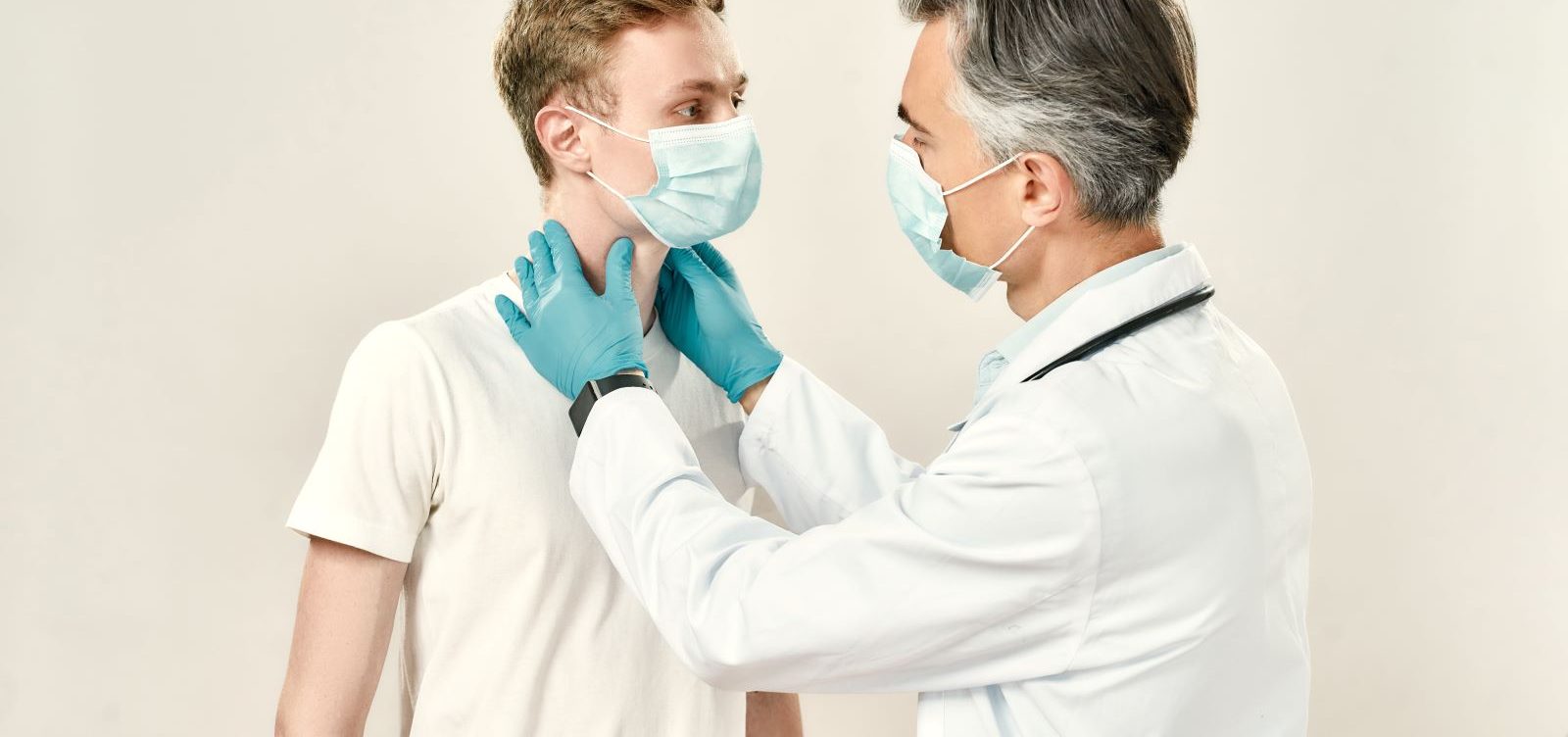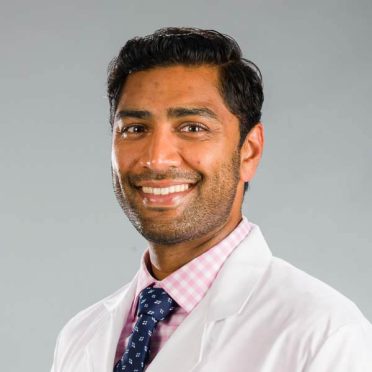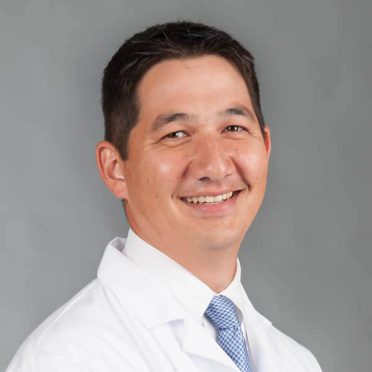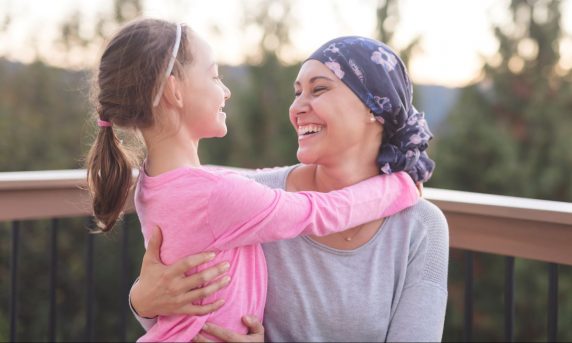All things considered, George Krivda considers his cancer journey a pretty straight-forward path.
At a routine annual exam in 2018, Krivda’s primary care doctor found a lump on the right side of the 61-year-old’s neck. A referral to the otolaryngologist uncovered an abnormally enlarged lymph node, and a needle biopsy revealed metastatic cancer.
With this diagnosis of metastatic squamous cell carcinoma, Krivda was referred to Clinton Kuwada, MD, and Akshay Patel, DO, FAOCO, co-directors of the Head and Neck Cancer Program at Hartford Hospital’s Helen & Harry Gray Cancer Center.
A PET scan showed a small tumor on the right side of the oropharynx (the portion of the throat that involves the tonsils and base of tongue).
“We recommended primary surgical treatment including a transoral robotic resection of the oropharyngeal tumor and a right sided neck dissection,” Kuwada said. Using the robotic technology at Hartford Hospital, Kuwada approached the oropharyngeal tumor through the mouth.
With the robotic approach, Kuwada excised the tumor from the throat with clear margins and tested more than 40 lymph nodes in the right neck dissection. Cancer was found only in the one lymph node that was first noted by his primary care physician.
“The transoral robotic approach is a minimally invasive technique that can allow for effective and safe removal of tumors in the throat with excellent oncologic outcomes,” Kuwada said. “The patients typically have essentially normal swallowing function once they recover from surgery.”
With every patient, Kuwada said, “Our number one priority is to cure them. Number two is preserving their quality of life. In most of these cases, this involves trying to preserve normal swallowing function and enjoyment of eating and swallowing.”
Kuwada founded Hartford HealthCare’s Head and Neck Cancer Program 10 years ago, and Patel has been co-director with him for the last four years.
Krivda ended up working closely with both doctors, but the day after his surgery he developed some internal bleeding. Krivda mentioned to a nurse that he thought his neck looked “wrong. The next thing I know, Dr. Patel is right there, looking at it, feeling it. And then he says ‘Let’s get OR 3 ready’.”
Kuwada was waiting in the operating room when they arrived. “And I remember, Dr. Kuwada laid his hand on my chest and said ‘Don’t worry, George, I know just what to do’.”
After his release from the hospital, Krivda needed no further treatment. No chemotherapy. No radiation. He maintains a regular schedule for follow-up appointments and tests for surveillance purposes, and is very close to the five year mark when he will be considered “cancer-free.”
“I can’t say enough about the whole operation they have,” Krivda said. “From start to finish, everyone involved from the doctors to the nurses, they were very caring and always very on top of everything. Dr. Kuwada is a brilliant doctor, as is Dr. Patel.”
After the initial bleeding issue, his recovery was routine. From initial diagnosis to discharge from the hospital was only two months.
“For two weeks my throat felt like there were razor blades in it,” he said. “The first real food I ate was Kraft macaroni and cheese. And other than a scar on my neck, you wouldn’t know I had surgery. Today it kind of feels like just a dream, like a memory.”




